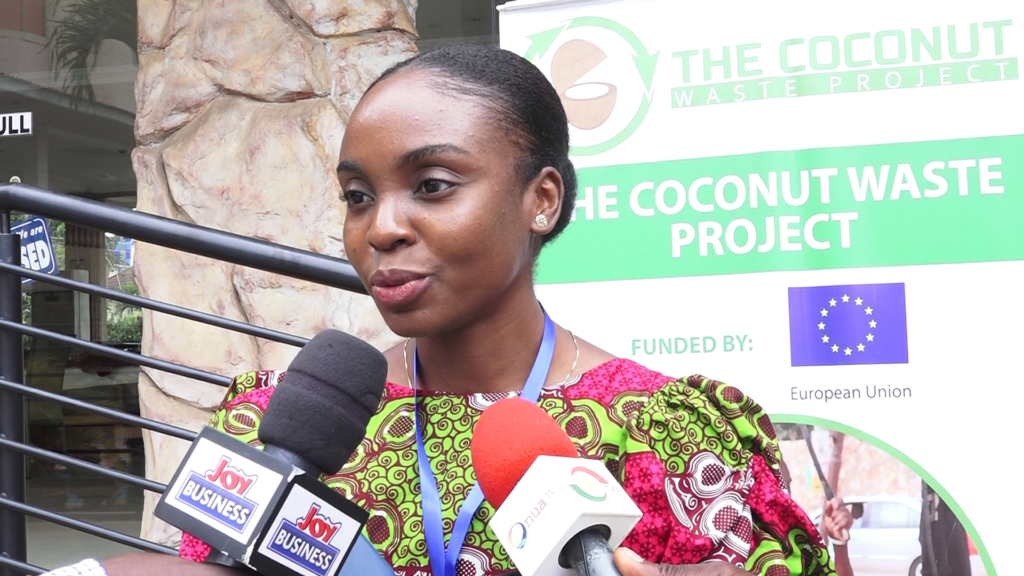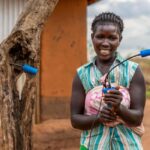As part of measures to manage waste and create employment in the country, Cerath Development Organisation is set to employ some youth to go into coconut waste project.
The Coconut Waste Project, which is funded by the European Union under the Circular Economy and Local Development Programme will create opportunities through value addition to coconut waste in the La Nkwantanang Municipality.
The project is expected to aggregate an average of 100 tonnes of coconut waste on daily basis.
In addition, the aggregation of coconut husks is expected to create 100 jobs for the youth within the La Nkwantanang Municipality.
Also, 50 youth will receive training on various entrepreneurial schemes and sustainable waste management practices.
Speaking to Joy Business at a workshop in Accra, Country Director of Cerath Development Organisation, Dr. Lucille Abruquah said the project will improve sanitation as well as create jobs.

“We will provide jobs for about 100 people through the coconut processing factory which is 70 percent complete. The factory will have an output capacity of 25 tonnes”, she said.
She explained that the output will contribute to improving sanitation conditions, and employment opportunities for marginalized people in the municipality.
Dr. Abruquah pointed out that the key activities being implemented by Cerath Development Organisation ahead of the launch of the facility include baseline survey on the coconut value chain, mapping of coconut vendors and dumping sites with GPS technologies, capacity building for youth entrepreneurs as well as engagement with market actors for partnership opportunities.
She added that the organisation is also participating in the Green Ghana Day and training on Cooperative formation and Management.
On his part, the Pogramme Officer, in charge of Infrastructure and Sustainable Development Section at the European Union, Clemens Beckers reiterated the EU’s commitment to supportingCircular Economy in Ghana.
He stated that the EU will continue to invest in waste management and recycling of waste to help reduce pollution of the environment.
The Coconut Waste Project was launched in May 2021in Accra.





